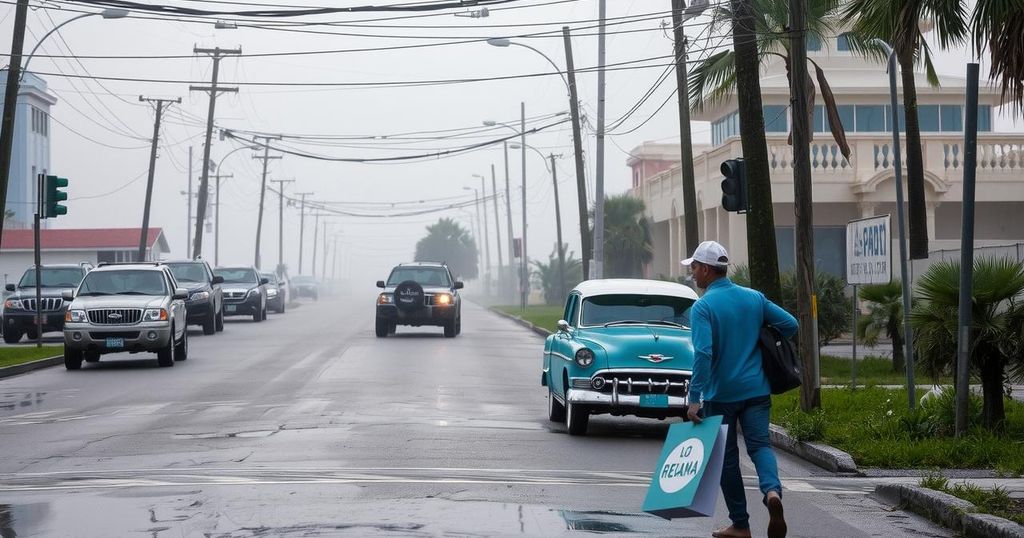Cuba’s Power Restoration Efforts Following Tropical Storm Oscar
Cuba is recovering from the devastation caused by Tropical Storm Oscar, with significant power restoration efforts underway in Havana and surrounding provinces. The storm, initially a Category 1 hurricane, led to severe flooding and landslides, resulting in six fatalities. Despite these challenges, over 70% of the nation’s power has been restored, and 90% of clients in Havana regained electricity by midday Tuesday.
On Tuesday, Cuba made significant strides in restoring electricity across the nation, including both Havana and surrounding provinces, in the wake of recovery efforts following Tropical Storm Oscar. Initially making landfall as a Category 1 hurricane near Baracoa, Oscar was later downgraded, yet it left a path of destruction in its wake, characterized by downed power lines, extensive flooding, and landslides throughout eastern Cuba. In a particularly severe incident, the small town of San Antonio del Sur experienced a devastating flash flood on Monday, resulting in six fatalities, among them a young child. Many areas saw remarkable rainfall totals in excess of 10 inches (25 cm), which considerably impacted agricultural lands, uprooted banana plants, and adversely affected the region’s prized coffee production. Although many areas in Guantanamo remained isolated due to flooded rivers and obstructed roads, emergency crews made headway in restoring communication and power. By mid-afternoon on Tuesday, officials reported stabilization of the electrical grid after a major failure preceding Oscar’s arrival, which had left approximately 10 million citizens without power since Friday. By Tuesday, it was indicated that over 70% of Cuba had regained electricity, with power plants expected to become operational shortly, further enhancing these recovery efforts. In the capital of Havana, the grid operator announced that 90% of clients had also reclaimed power by midday, largely due to minimal disruption caused by the storm. Cuba’s oil-dependent power infrastructure, already facing challenges, had reached a crisis point this year due to decreasing oil imports from key partners, including Venezuela, Russia, and Mexico, which culminated in the recent nationwide blackout.
The recent events in Cuba highlight the vulnerabilities of its electrical infrastructure, particularly in the context of natural disasters. The impact of Tropical Storm Oscar has underscored ongoing issues related to power generation and distribution, which have become increasingly critical given the country’s economic constraints. Such storms not only threaten the physical safety of communities but also have profound implications for agriculture and food security. The restoration efforts undertaken by the Cuban government reflect the importance of immediate disaster response and highlight broader systemic challenges exacerbated by the reliance on aging oil-fired power plants.
In summary, Cuba’s response to the aftermath of Tropical Storm Oscar reflects both the resilience of its emergency services and the persistent challenges faced by its power grid infrastructure. With stabilization efforts underway, the nation is gradually recovering from the storm’s impact, though the tragic loss of life in areas such as San Antonio del Sur underscores the severe consequences of natural disasters in economically vulnerable regions. Continuing efforts to modernize and diversify energy resources will be essential in mitigating future crises.
Original Source: www.westhawaiitoday.com




Post Comment